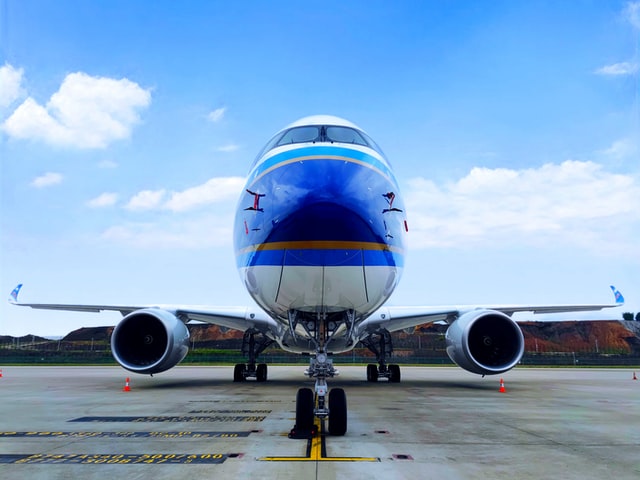More people are travelling by plane than ever before — whether this is on holiday or for business purposes. But problems are arising when it comes to air pollution, leading governments to come up with new plans to combat this issue; and changing the fuel is one of them.
How many people are travelling by air?
Looking to invest in five new low-carbon fuel plants, the British government are set to invest £22m which will cause big changes in the waste industry. Comments from the Department of Transport said that planes and lorries that have the potential to be driven by waste could use up to 90% less carbon in comparison to regular fossil fuels. This news comes at a time where the UK wants to become a zero-emission zone by 2040 with the removal of petrol and diesel cars and is eager to invest in environmental alternatives.
We take a look at the historic travel trends and analyse why we’re looking for a new low-carbon solution:
Travelling by air has been on the rise since 2005, with 2.14bn people travelling that year and 2.26bn in 2006. In 2007, the result grew significantly and stood at 2.46bn. 2.49bn was the result for 2008. However, in 2009 this number dropped to 2.48bn. Without failure, 2010 saw a higher climb as the number of people travelling hit 2.70bn — a momentous increase. In 2011, the figure increased to 2.86bn.
The number of travellers hit 3bn mark in 2012 and continued to rise in 2013 where 3.15bn travelled. This increased in 2014 with 3.33bn travelling. Although this has been increasing over time with only one drop, it is expected to rise further. 2015 saw 3.57bn travel and in 2016, there were 3.77bn travellers.
Due to more planes in the sky, air pollution is becoming a greater problem. Aeroplanes emit particles and gases into the air which is causing a long-term effect on global dimming, climate change and ocean acidification. With more people jetting off, action needs to be taken and this has been the driving force behind the big investment, of which 70 groups are bidding for the funding.
Airlines that have pledged their allegiance
With aims to turn waste into renewable jet fuel, British Airways have teamed up with Velocys with an investment set to be announced in 2019. The waste plant used is expected to bring in hundreds of thousands of waste produce each year, which will be converted into clean-burning fuel that will later be used to help get British Airway planes off the ground. The waste that is used is expected to reduce greenhouse gases by 60%, with a 90% reduction in particulate matter emissions in comparison to traditional jet fuel.
hazardous waste management providers Reconomy take a look at what airlines around the world are doing to combat this issue.
United Airlines
30% of agricultural and household waste is used on United Airline flights. From this, carbon dioxide emissions will be reduced by a huge 60% on a lifecycle basis in comparison to conventional jet fuel.
Hainan Airlines
On a flight from Beijing to Chicago, which took 12.5 hours — Hainan Airlines used 15% biofuels on the journey. The cooking oils, which included vegetable oils and animal fat, were taken from restaurants; and this could help reduce emissions by 50%, if used instead of normal jet fuel.
Lufthansa
Lufthansa has also made great changes when it comes to how their airline operates. In 2016, it entered a contract with a company that produces biofuel from grain. Lufthansa will purchase 8 million gallons of biofuels per year until 2020, and has already done many biofuel and jet fuel testings on commercial flights.
Qantas
There have been great developments in fuelling aeroplanes with waste, especially with Qantas. In 2012, Qantas flew an Airbus A330, which is a wide-body jet with a twin engine, and powered it with 50% cooking oils and 50% conventional jet fuel. In 2018, Qantas hopes to achieve a flight from Australia to America with 30% biofuel from mustard seeds and 70% conventional fuel. This should reduce emissions by 20%.


